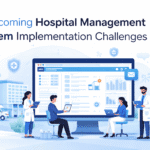Relearn Reinvent
The New Corporate Superpower
The world of work is changing faster than ever and the biggest question every organization faces today isn’t about technology. It’s about people.
How do we help our people grow when the skills of yesterday are already outdated today? How do we stay relevant when change is the only constant? The answer lies in one word that defines the future of work: learning.
The Reality: Change Is the New Normal
There was a time when skills lasted a decade. Today, they can expire in a year. Automation, AI, digital tools, and evolving business models are transforming roles across every industry. But this shift isn’t about jobs disappearing it’s about jobs evolving. New technologies are only as powerful as the people who use them. The most valuable asset in any organization is not technology. It’s people who never stop learning.
What They Really Mean
Upskilling is about deepening existing strengths learning new tools, techniques, or ways to perform better in your current role.
Example: A finance professional learning data visualization to interpret insights faster. Reskilling is about reinvention preparing people for entirely new roles as business needs evolve. Both are essential. Upskilling keeps people relevant; reskilling keeps them employable.
The Human Side of Learning
Upskilling and reskilling aren’t just corporate training buzzwords — they’re about human adaptability. They require:
- Curiosity to explore new areas.
- Courage to let go of what’s familiar.
- Confidence to start again.
And for organizations, they require something deeper trust.
Leaders must create environments where learning isn’t seen as a weakness, but as a strength. In the future of work, learning is not an event, it’s a culture.
Creating Learning-Ready Cultures
Upskilling fails when it’s treated as a one-time program.
It succeeds when learning becomes part of the organization’s everyday rhythm.
Leaders can build this culture by: Encouraging continuous curiosity — “What’s one new thing we learned this week?
- Rewarding effort, not just outcomes.
- Giving employees the time and space to explore new skills.
- Linking learning directly to purpose and growth, not just KPIs.
When employees see learning as personal growth instead of corporate compliance, transformation happens naturally.
The Future of Talent
The workforce of the future will not be defined by job titles, but by capabilities. Tomorrow’s talent will be:
- Blended — working across human and digital skills.
- Adaptable — comfortable with constant change.
- Human-centered — using empathy, creativity, and problem-solving as differentiators.
Organizations that invest in developing these qualities will not just survive they’ll lead. The future doesn’t belong to the most powerful companies it belongs to the most adaptable people.
Building the Future, One Skill at a Time
Every learning journey starts small a course, a conversation, a question.
But when thousands of people in an organization take that step together, it becomes transformation. Because when people grow, organizations elevate.
Closing Thought
The future of talent isn’t waiting to be discovered; it’s waiting to be developed. And the organizations that empower continuous learning today are the ones that will shape tomorrow. Upskilling and reskilling are not about catching up. They’re about staying ready for whatever comes next.




